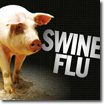
By Michael Carmichael
May 7, 2009
Corp! readers should know what their obligations might be as the A-(H1N1) flu continues to spread across the country, though apparently in a somewhat milder form than originally expected. We asked Karen Kienbaum of The Kienbaum Law Group, P.C. for suggestions.

|
“If employers lead by a deliberate example consistent with an updated crisis plan, they will ease any anxiety or panic in their employees. Only 24-hour news cycles benefit from being on the anxiety edge; businesses do not,” Kienbaum replied. She then provided Corp! readers with the following:
The Occupational Safety and Health Act (OSHA) requires employers to protect and ensure the safety of their employees. Even if specific regulations do not exist, such as for use of hazardous substances, employers must still take steps to prevent exposure to toxins, viruses or substances that can harm employees.
The Swine Flu, also known as the H1N1 virus, has been confirmed in 66 cases across the U.S., killing one 23-month old infant. The virus has killed more than 150 and affected more than 2,000 people across Mexico. Health experts have warned of a possible pandemic and the US has issued cautions.
What Should You Do as an Employer?
In light of the pandemic potential of the Swine Flu, prudent employers should promptly assess their disease prevention plans and activities. By example, consider the following:
-¢ Review Your Safety Policies: Identify a Responsible Individual (“RI”) to review existing plans and policies. The review should evaluate safety issues such as potential exposure to materials received from outside the US, and special precautions for employees who travel outside the US on business, particularly to areas of known outbreak.
-¢ Review Your Health Care Benefits: Update any health care plans or leave of absence policies, if necessary. Be sure FMLA and other leaves are coordinated with paid time off or other benefits.
-¢ Review Your Disaster Plan: Extreme circumstances should also be evaluated and assessed, such as what the steps and consequences are if any product or facility were to cease operations for some period of time.
-¢ Consider Additional Preventative Hygiene Procedures: Ensure employees are following safe hygiene procedures, and carefully monitor illness or absences.
If necessary, talk with your lawyer. Please contact counsel if you need assistance with the development or modification of your health and safety, or related personnel policies to better ensure compliance with the law, and the health of your employees.








